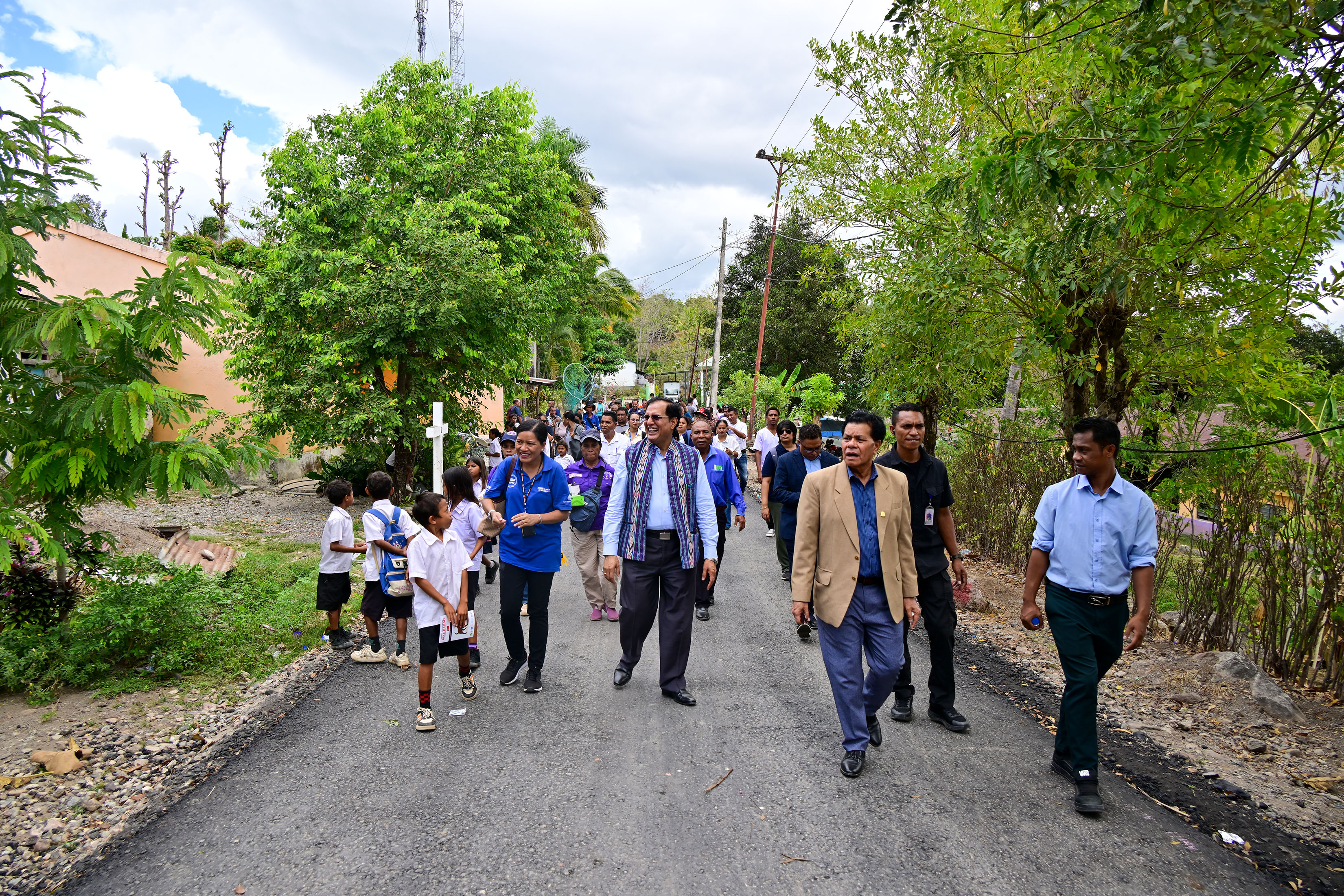Dili, September 12: A joint rabies awareness and vaccination campaign was launched in Maliana, Bobonaro municipality, on Monday, the area with the highest reported animal rabies cases.
Led by the Ministry of Health and supported by the Ministries of Education and Agriculture, Livestock, Fisheries and Forestry (MALFF), with technical backing from the World Health Organization (WHO), the campaign takes a One Health approach — uniting human, animal and community health efforts.

At the launch held at E.B.C Victor Santa in Maliana on Monday, children watched health workers talk about rabies prevention and then wash a mock dog bite with soapy water — a simple 15-minute step that can save lives. Health workers also administered rabies vaccines to five children, an adolescent and two adults during the event, showing communities that timely vaccination is safe, effective, and lifesaving.

Later in the day, health and animal worker teams, accompanied by Vice Minister of Health Mr José dos Reis Magno and WHO Representative Dr Arvind Mathur, visited households to raise awareness and vaccinate dogs, with Dr Jonita Jong, Director of the Veterinary Directorate, demonstrating on-the-spot animal vaccination and tagging.
“Rabies is 100% fatal once symptoms appear, but also 100% preventable. We can stop it before it reaches our neighbourhoods,” said Mr Magno, while inaugurating the campaign. He urged municipal authorities to replicate and sustain this model, adding: “Community engagement, education and local action are the keys to preventing rabies deaths.”
Dr Mathur emphasized that vaccination and awareness are the two key tools. “This campaign teaches three simple steps that save lives: wash the wound, go to a health centre, and get vaccinated.” He noted that schools were placed at the centre of the campaign as almost 40% of dog bite victims are children under 15.
The event also underscored regional solidarity, with the Ambassador of India, Madan Kumar Ghildiyal, lending his support.

The campaign combines classroom education and live wound-washing demonstrations with afternoon community outreach, including door-to-door awareness, household stickers, and on-the-spot dog vaccinations. Between September 8–11, it reached 18 schools across 15 hotspots in Maliana and Atabae and extended into surrounding aldeia (villages).

Within Maliana, the campaign covered the sucos of Saburai, Holsa, Ritabou, Lahomea and Tapo Memo, while in Atabae it targeted schools in Aidabaleten. Six national and six municipal teams worked together to deliver the campaign that also received support from partners like Korea International Cooperation Agency (KOICA) and the Australian government.

In response to the first human rabies case reported in March 2024, WHO promptly supported the Ministry of Health with 6,000 doses of rabies vaccine and 2,000 doses of rabies immunoglobulin (RIG). Building on that, an additional 10,000 doses of WHO-procured rabies vaccine and 1,000 doses of RIG reached Dili on August 31 to strengthen the national response. Furthermore, in collaboration with partners such as the Governments of Indonesia and India, WHO has facilitated the mobilization of an additional 12,000 doses of vaccine and 2,000 doses of RIG.

At the same time, the Ministry of Health has established a National Task Force that meets daily to coordinate action across sectors, ensuring that human health, animal health and community awareness move forward together to end rabies.
